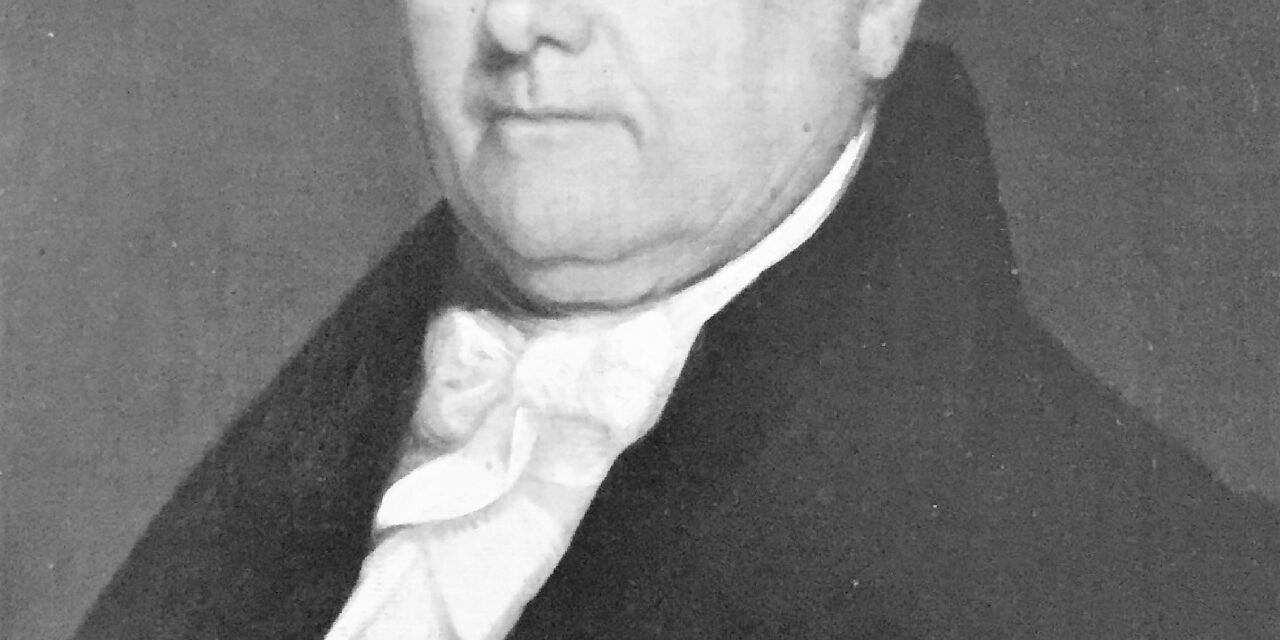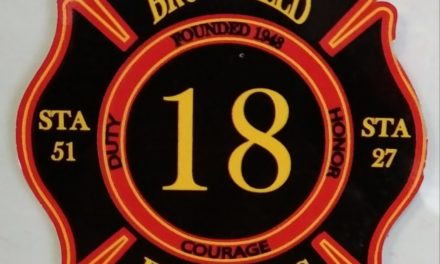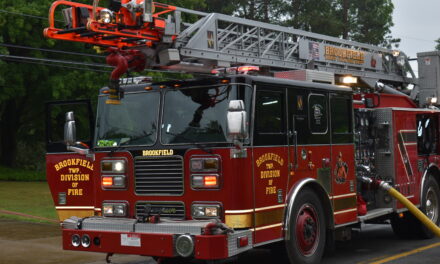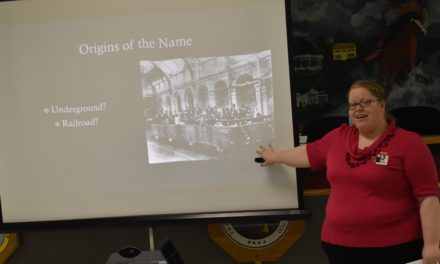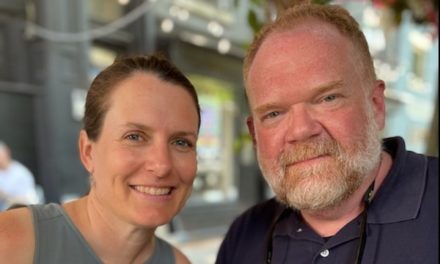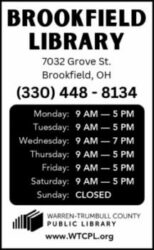By Lois Werner
When the first white explorers reached what we now know as Brookfield Township, it was reminiscent of Longfellow’s forest primeval. The land was populated in abundance by bears, deer, wolves, birds and various small animals. Low areas were flooded by beaver dams, and downed trees and other debris blocked local streams, making waterways impassable.
A wanderer might have occasionally seen the footprint of an indigenous person who had been hunting game or gathering herbs or berries, and archaeological surveys have revealed arrowheads and bits of pottery dating from between 8,000 B.C. and 1650, when a small village on Little Yankee Run was abandoned.
By early 1700, the Iroquois tribes from the Finger Lakes region of New York claimed this area as their hunting grounds. They built small campsites to preserve food with which to return to New York for the winter.
Ohio was part of the Northwest Territory of Virginia until 1784, when Virginia ceded it to the fledgling federal government. The Public Land Act of 1785 created townships of land made into squares six miles by six miles. Two years later, the Northwest Ordinance created land ownership and succession, governmental institutions including a governor, legislature and judiciary, and rights such as trial by jury, freedom of religion and freedom from slavery.
The part of Ohio that now includes Brookfield Township was the Connecticut Western Reserve, which was sold to the Connecticut Land Co. in 1795.
 The next year, Moses Cleaveland sat down with the Iroquois to guarantee that they no longer claimed this area. In July of that year, Cleaveland and 52 surveyors, cooks and others came to survey the Pennsylvania border, and he soon established the cities of Cleveland, Youngstown and Warren. He also created townships of five square miles, contrary to the Public Land Act.
The next year, Moses Cleaveland sat down with the Iroquois to guarantee that they no longer claimed this area. In July of that year, Cleaveland and 52 surveyors, cooks and others came to survey the Pennsylvania border, and he soon established the cities of Cleveland, Youngstown and Warren. He also created townships of five square miles, contrary to the Public Land Act.
There was no legal or military protection in the Western Reserve until 1800 and that prevented many settlers from coming here.
Samuel Hinckley, a Revolutionary War veteran, lawyer and judge, bought the land now known as Brookfield Township on Sept. 14, 1799. He paid $12,903.23 for 15,304 acres, and had the land surveyed in 1800, creating lots.
In 1801, Hinckley named the land Brookfield Township after Brookfield, Mass., where he was born.
Hinckley wanted a blacksmith to be among the first settlers because of the essential service one provided, and as a way to attract more settlers.
James McMullin, a Revolutionary War veteran and blacksmith from Pennsylvania, bought the first deed, Lot 78, on Jan. 3, 1801, for $306. Much of that lot is the present-day property of Yankee Run Golf Course, owned by McMullin descendants.
McMullin probably did not move with his family to the property until 1804, when there were other settlers who were in need of his trade.
New settlers were slow to come, but come they did. Ohio became a state in 1803, and the settlers that began moving into the territory were mainly European Protestants from Connecticut. In 1804, John Patterson and his wife, and his sister, Mary Witherspoon; Jacob Ulp and his wife; Robert and James Montgomery; John Johnson; and Saul Munson settled here.
The Jacob Humason family arrived in 1805, and 1806 saw the additions of Dr. Thomas Hartford; John Briggs, a judge who also served in the state legislature; the Benjamin Bentley family; William Cunningham; and James V. Willson.
Ebenezer Combs, Henry Hull, Isaac Flower Jr., Henry Gandy and Nathan Burdge moved here in 1807; Ethan Newcomb and John D. Smith came in 1808; and Thomas Chew was added in 1809.
The 1810 tax records provide a first census of Brookfield Township residents: the Timothy Alderman family from Vienna, Jonathan Alderman, John Briggs, Nathan Briggs, Robert Bentley, William Budd, Richard Creamer, William Cunningham, Walter Clark, Ebenezer Combs, Isaac Flower Jr., Daniel Groscost, Henry Gandy, Thomas G. Jones, Robert Hughes, Isaac Jones, Thomas G. Jones, John Johnson, Jonathan Kerr, Constant Lake, Isaac Lloyd, James Montgomery, Robert Montgomery, James McMullin, James G. Middleton, Samuel Munson, Thomas Patton, John Patterson, Johnson Patrick, Anthony Patrick, Samuel Patrick, James Russel, Jacob Ulp, James Willson, William White, Simeon Wheeler, David Wheeler, Collins Young and Philip Yarnel. Other records list Thomas and Matthew Thompson, William Chatfield, William Burnett Sr. and the John Tribby Jr. family.
Lois Werner now lives in Hubbard, but was a long-time resident of Brookfield and extensively studies the history of the township. She is the former archivist of the Brookfield Township Historical Society.

